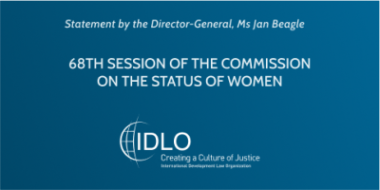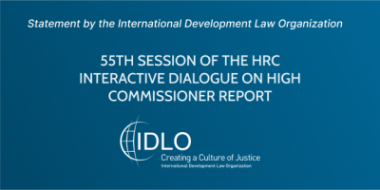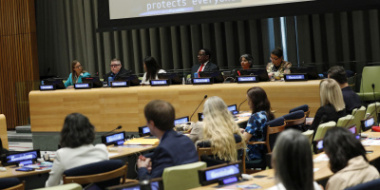Strengthening the Capacity of Police and Other Law Enforcement Agencies to Effectively Respond to Trafficking in Persons
In Liberia, the most prevalent form of trafficking in persons involves women and children being trafficked from rural to urban areas, with family members usually acting as independent traffickers. The National Taskforce on Trafficking in Persons has developed a five-year National Action Plan (2019 – 2023), with IDLO support, which shows the commitment and political will of the Liberian government to combat trafficking in persons.














